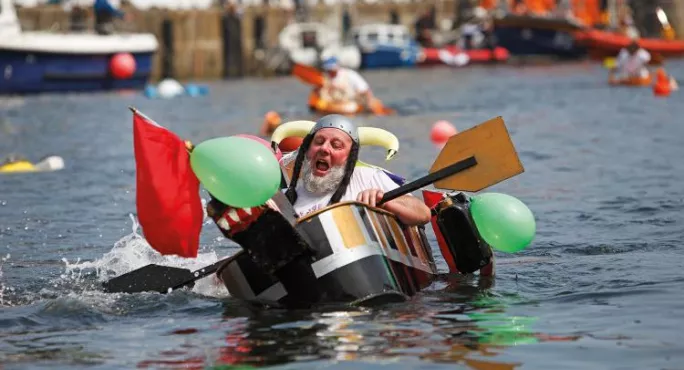“I don’t like the sausage factory approach to education,” says Ian Crews, principal of South Devon University Technical College. “We’re trying to do things differently.”
Behind him, groups of his students are carrying out an Antarctic rescue operation, manoeuvring boats through icy water to gather lost supplies. There is a tense moment as a crate being lifted by a crane only just clears the top of an iceberg.
Crews is not speaking to me in Antarctica, but in a hanger on a navy base in Gosport. His students are taking part in a Royal Navy Young Engineers challenge that is being held in partnership with University Technical Colleges. The teams have been asked to design and build a boat that is capable of retrieving submerged and floating objects from tanks of water.
The students compete against one another, trying and failing to collect all the objects. They do not appear disheartened if the first attempt doesn’t work. Instead, they go back and try again. It strikes me that they are demonstrating a quality that has been widely discussed in education lately: resilience.
“Resilience is certainly part of the work these students do,” says Crews. “You can’t do these projects without trial and error. It’s part of what makes our courses different.”
Through a combination of longer school days and partnerships with local employers, the UTCs are able to focus on developing the skills required to work in technical industries. At least 40 per cent of learning time is dedicated to the school’s technical specialisms. For some teachers, this is a particular draw to working in a UTC.
Graeme Jackson, engineering subject leader at Energy Coast UTC says: “My subject is seen as being on a par with maths and English. It isn’t an afterthought. That makes it easier for me to communicate my passion for engineering to the students.”
Computer-aided manufacture and 3D-printing are amongst the techniques that Jackson’s students have used to create their two boats. He shows them to me with obvious pride. One is wooden and in the style of a fishing trawler, while the other is a red plastic speed boat. They couldn’t be more different interpretations of the brief and certainly do not look like they have been produced in a sausage factory
The day ends with an awards ceremony, but the emphasis seems to be firmly on the taking part rather than the winning. Even the unsuccessful teams are upbeat as they pack away their equipment and prepare for long journeys home. You don’t need to look much further for an example of students showing resilience.
“They’re already planning their entries for next year,” Jackson tells me. “We’re going to crack it next time.”
Want to keep up with the latest education news and opinion? Follow TES on Twitter and like TES on Facebook




